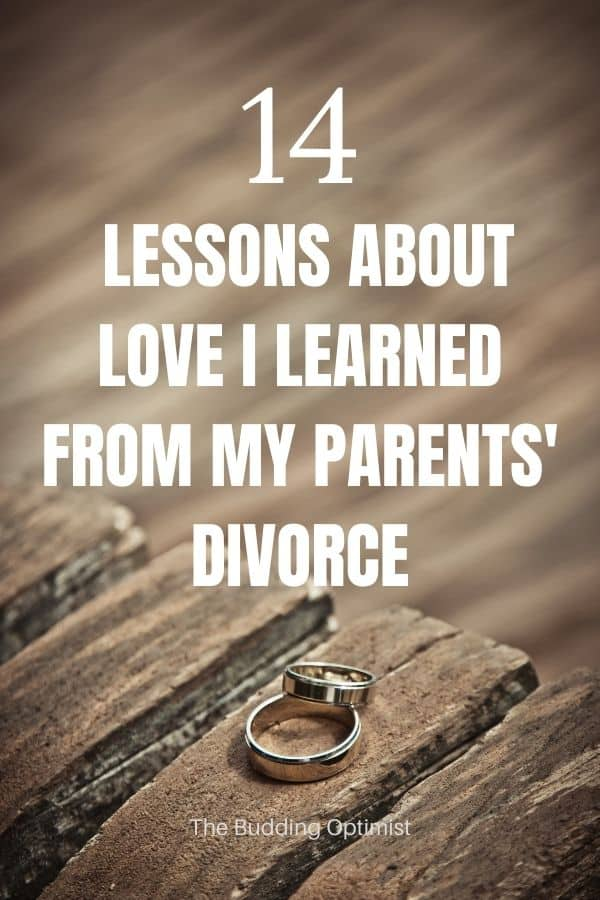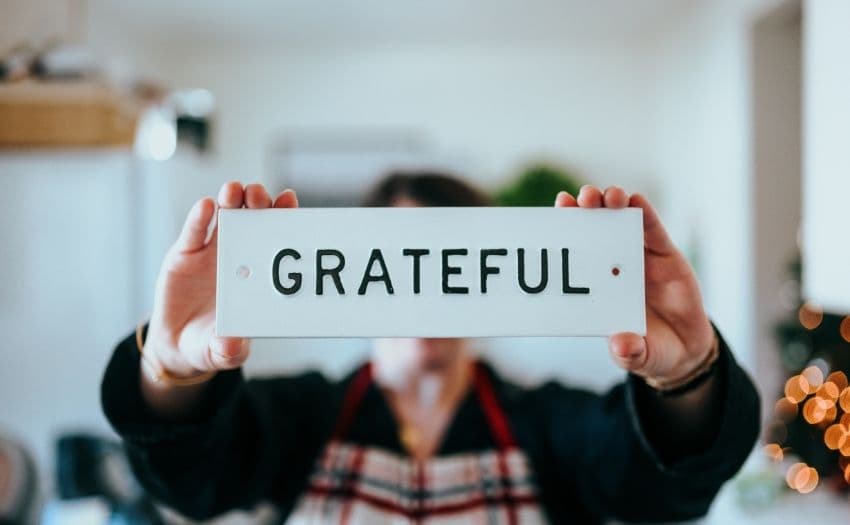What I Learned About Love and Relationship From Watching My Parents’ Marriage Fall Apart
It was a rainy afternoon. I rode in the backseat of our family car with my mother as my father drove us to the courthouse. My parents were going to sign some documents that would put an end to their rollercoaster of a marriage.
I was sixteen.
My mother cried, softly, the whole time. My father didn’t say anything. I looked out the window while holding my mother’s hand. I was sad—I could feel my mother’s pain and my heart ached for her.
But more than anything, I felt relieved.
Why I Felt Relieved That My Parents’ Marriage was Ending
It wasn’t my parents’ first time getting a divorce—from each other, no less. I was barely five at the time of their first breakup. All I can recall are the distorted sounds and flashing images of their fights—shouting, cursing, and broken china everywhere.
When my father didn’t come home one day, I was told that he had left with his mistress and was moving hundreds of miles away.
It devastated me.
Good china wasn’t the only thing that was shattered by my parents’ first divorce.
Eventually though, my father came home. He begged tirelessly for my mother’s forgiveness. My father could charm his way through anything, I’ll give him that. My parents reunited when I was about 10.
Like many newlyweds, their second attempt at marriage with each other started out with a sense of optimism—this time it was going to work, they both believed. But the first signs of trouble emerged soon after the three of us settled in our new home in a new country.
It started with a kick, then it was a punch, and one day he slapped her so hard it perforated her eardrum.
Like many women suffering from abuse, she clung to the marriage, feeding on highs of the good days—even though they were few and far in between—and the flicker of hope that he might change. But he never did.
Ironically, it was my father who broke off their marriage, again. Only this time, I’m glad he did. As we were leaving the courthouse that rainy afternoon when I was sixteen, I could think of nothing else except the new apartment my mother and I were moving into, and how peaceful our life was going to be from now on.
Learning From My Parents’ Divorce
In the years after my parents parted ways for good, I did a lot of reflecting. One question I asked myself over and over was:
What can I learn from my parents’ divorce so that I don’t repeat the same mistakes when it comes to love?
And when I dug deep, sure enough, I found many invaluable lessons to draw from their marriage and divorce. These lessons have taught me how to find the kind of true love that warms my heart and more importantly, how to maintain its precious glow year after year.
And here are 14 of the best lessons about love I learned from my parents’ divorce.
Unforgettable Lessons About Love I Learned From Watching My Parents’ Relationship Unravel

1. Never let the opinions of others dictate your relationship status
When my parents first got married in the 80’s, they hardly knew each other. They were married after only a couple of months of hasty meetings—and all because my mother was under a lot of pressure to do so. She was already 26 years old at the time, and still unmarried.
If you’re a woman living in China, by the time you’re 25 and you’re still not married, your parents would panic. This is still true to this day, so one can only imagine the pressure my mother must have felt back in the 80’s—when the social environment was more stifling.
My mother regrets it to this day that she had allowed the opinions of others rush her into marriage so quickly.
Had she given herself the time and space to think about what she needed in a marriage and really assessed her partner, perhaps she would have realized they weren’t right for each other. And had she not cared about how her friends, family, or coworkers would talk behind her back, perhaps she would have walked away from the marriage when it became toxic.
Her experience taught me that no matter what happens, I should never let the opinions of others dictate my relationship status.
You can be single. You can be married. Or you can be in a relationship and not get married. There is no one way to live and be happy. The choice is your own and nobody else’s.
2. Love is based on the foundation of respect, trust, and genuine care
I’ve seen, from my parents’ marriage, how miserable it can be for two people stuck in a relationship without these three things. There is no warmth or comfort in any relationship without respect, trust, and genuine care for each other—let alone love.
Love is not in a bouquet of flowers, a romantic dinner, or a dance under the moonlight.
Love is showing respect even when you disagree on things, keeping to your word even when it’s hard to do so, and taking care of each other day in and day out.
3. Love is work, sometimes hard work
Passionate love, the kind that makes your heart flutter and your eyes go all googly whenever you see that person, only lasts 2-3 years. After this, you begin to see flaws you couldn’t see in each other before, hurdles you could once gloss over become more daunting than ever, and differences you used to think were “charming” now drive you apart.
True love—the kind that remains after the intensity of romance wears off and goes on to build a lasting, rewarding partnership—requires hard work from both sides to keep it going.
And that’s where many couples falter—including my parents.
My parents were happy once. They too, started their relationship with intense feelings for each other. They both confided in me—at one time or another—that after 2 years together and a baby, their relationship dynamic changed. It was around that time when things started to fall off the rails. My mother was willing to work at it. My father was not.
Love is hard work. But if two people are both willing to put in the hard work, love can be beautiful and everlasting.
4. Gratitude strengthens love, ungratefulness destroys it
Not only does gratitude make us happy, but it can also strengthen our relationship.
Ungratefulness, on the other hand, can unravel a bond quickly.
When you take everything the other person does for you as given. When you stop saying “thank you” because you think it’s not necessary. And when you start complaining more than expressing appreciation—that’s when the relationship starts to turn sour from sweet.
Like in the case of my parents’ relationship. Seeing how a lack of appreciation for each other drove them apart, I’m determined to have an abundance of gratitude in my own relationship. And here’s how I’m doing it.
Gratitude is the secret ingredient that makes every relationship sweet. Don’t be stingy with it.
5. Don’t try to fix someone
My mother was convinced that with enough patience, sacrifice, and grit, she could make my father change. She was so determined in her desire to “fix” him that she could not see how pointless the whole thing was. The more she tried to make him change, the more he resisted. It became a futile game of cat and mouse.
But the good thing about the ordeal is that it made me realize a fundamental truth of love:
DON’T try to fix someone.
We’re all responsible for ourselves as adults. We’re accountable for our own problems, our own happiness, and our own goals and dreams.
No one has the power to fix anybody but themselves, nor should anyone carry the burden of fixing someone else.
6. We do not need to beg for love, and nor should we
I learned, from my parents’ marriage, that begging for love only begets disappointment, loneliness, and contempt.
If someone truly loves us for who we are, they will not make us beg for their attention, affection, or approval. They will gladly give us these things.
If someone doesn’t love us, no amount of begging will make them genuinely interested in our thoughts and feelings. No amount of begging will make them accept us for who we are. And no amount of begging will make us their priority.
Just ain’t gonna happen.
If you have to beg for love, then walk away. Someone will show you love without you having to ask.
7. Loving yourself is not only important, but necessary
My mother lost much of herself in her marriage to my father. She sacrificed her own goals and dreams, her own desires and needs, and even her own self-worth.
And she was miserable.
But luckily, she was able to regain herself once again after the divorce.
She bought a new home. She found a job she loved and was proud of. And she learned new things.
She became stronger, happier, and more resilient than ever. She’s past the age of 60 now and can still beat me lifting groceries. Her laughter exudes so much energy that you can feel its vibration. Just looking at her, you could never tell the torment she went through in her marriage to my father.
Seeing my mother’s personal growth after her divorce to my father made me realize that while loving another person requires compromise and sometimes sacrifice, you should never do so at the expense of your own self-worth and self-love.
Love yourself first. It’s necessary if you’re going to love another person and not lose sight of yourself.
8. Adjust your expectations, but don’t waiver on your values
Esther Perel, a renowned relationship expert and someone I admire deeply, once said “expectations are resentments waiting to happen.”
I couldn’t agree more.
Some relationships are burdened by so many unrealistic expectations that they eventually implode. But on the other hand, you can’t lower your expectations so much that you tolerate abusiveness.
What I’ve learned is that in order to maintain a healthy relationship, you have to adjust your expectations to fit your reality, and that often requires letting go of stereotypes and rethinking social roles. For example, who says a man should be the one who buys a woman flowers?
But never, ever waiver on your values.
Your values are your guiding posts in life—they help you make tough decisions, tell you between what’s wrong and what’s right, and warn you when you’re about to veer off-course.
For example, if you value loyalty and trust, and someone you’re with keeps testing your boundary by doing things that are disloyal and untrustworthy, you will hear a voice at the back of your head that goes: “This doesn’t feel right.”
And that’s your cue to leave.
If you waiver on your values, you’ll waiver on everything. There’s pretty much nothing bad you won’t accept in a relationship, and that’s a dangerous place to be.
9. If somebody makes you feel like you’re not good enough, run
That’s a danger sign I’ve learned that I should never ignore in a relationship, thanks to my parents’ marriage.
If somebody says they love you but makes you feel like you’re not good enough with their actions, that ain’t love.
I refuse to let anybody toy with my self-worth in the name of love.
10. Don’t look to someone else to make you happy.
My parents used to blame each other for the frustration and disappointment they felt in their day to day lives. They both thought the other person was responsible for their happiness or misery. And this, in turn, made them even more resentful towards each other.
But the truth is—as I’ve come to realize many years later—nobody else is responsible for your happiness but yourself. Only you yourself can choose to laugh, to hope, and to live each day with kindness and gratitude. Alternatively, only yourself can be blamed for holding a grudge, drowning in regret, or lashing out in anger.
Nobody else can make you happy. Nobody else can make you despair either. Only you have that power.
11. How we behave when we’re angry can make or break a relationship
There’s no excuse for the vicious things we say or do out of anger. Every hurtful word we say and every cruel thing we do to each other leaves a cut. Some deeper than others. And some irreparable.
And when you have enough cuts, even the strongest of bonds will break.
I used to think my father was evil when I was younger, but I know now that he is just a flawed human being. He clearly has issues with anger. As do I. But unlike him who couldn’t confront his own demons, I’m making the choice every day to recognize my own flaws and trying my best to do better.
Because I know it’s not the good things we say or do when times are good that can make or break a relationship.
It’s how we behave when we’re angry that matters.
12. Resentment is a poison that kills love over time
Research shows that a happy marriage requires at least 5 positive interactions to counter the ill effects of a negative interaction.
But when there’s resentment in a relationship, it’s going to be hard to have those positive interactions.
When all you can think or talk about is how the other person has wronged you, failed to live up to your expectations, or made your life horrible, how do you then share a laugh together, talk about your hopes and dreams, or plan your life ahead?
I’ve learned that if you can’t get over resentment in a relationship, it’s best to go separate ways.
Resentment will only kill any love you have and poison your happiness and wellbeing along with it.
13. Love is not enough to make 2 wrong pieces of the puzzle fit together
One of the most important lessons about love I learned from my parents’ tumultuous marriage is this:
Love is not enough to make two fundamentally incompatible people stay together.
If you don’t share the same hobbies or interests, sure—there’s still a good chance that you can work it out. The gap is not so large that a “meet in the middle” mindset can’t fix.
But if your values differ drastically, for example, if one cherishes a life of simplicity and quietude and the other dreams of living like Jay Gatsby. Or if one prioritizes family above all else and the other would rather spend most of their time carousing bars with buddies—well, that just might be too wide of a chasm to cross.
Just because you love somebody doesn’t mean they’re right for you. If someone is not the right fit, the best thing you can give to them, and to yourself, is the gift of letting go.
14. Don’t say “I quit” unless you really mean it
My parents constantly talked about divorce for years before their final breakup—and yet nothing was resolved. They fought, got back together, then fought again, repeating the same destructive routine time after time like two hamsters on a spinning wheel.
I’ve learned, from watching them painfully go through these cycles, that you should never say “I quit” in a relationship UNLESS you really mean it.
Saying “I quit” when you really don’t plan to walk away from the relationship not only worsens any communication issues you already have in the relationship, but it also lightens the weight of your words.
But if you really mean to call it quits after thinking thoroughly and thoughtfully about your decision, then walk away gracefully. And don’t look back.
It’s okay to quit. Just don’t threaten to quit when you have no real intention of letting go.
Final Words on Lessons About Love
It’s been more than 16 years since that rainy afternoon at the courthouse. I’m 33 as I’m writing this.
I’m now married to the man who stuck by me for more than a decade as I dealt with one health crisis after another. Had I not learned these lessons about love from my parents’ divorce, I’m not so certain I would have had the wisdom to recognize true love when it came into my life, or the appreciation I have for it now.
Love is so joyous, profound, tender and yet, strong. I’m glad I never doubted its existence or gave up on the hope of finding it someday.
And I’m going to cherish it for as long as I still breathe.
Recommended Articles in Love and Relationships:
Questions to Ask Someone to Get to Know Them Deeply
7 Rules of Marriage Every Millennial Should Know
15 Simple Creative Ways to Show Love Every Day of the Year









